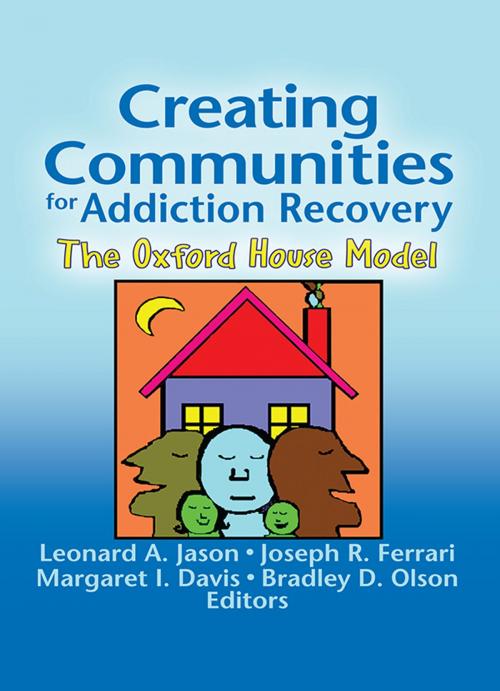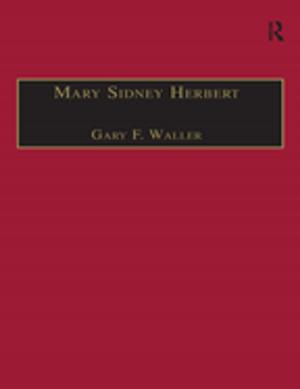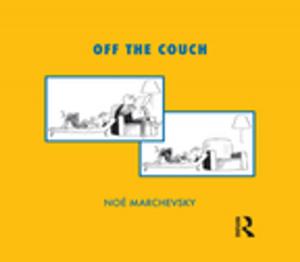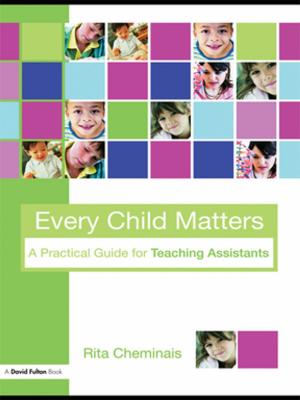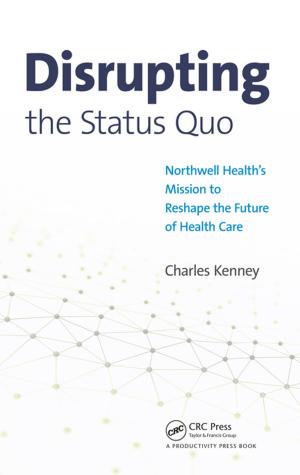Creating Communities for Addiction Recovery
The Oxford House Model
Nonfiction, Health & Well Being, Medical, Patient Care, Health Care Delivery, Psychology, Addictions, Counselling| Author: | ISBN: | 9781317954835 | |
| Publisher: | Taylor and Francis | Publication: | June 11, 2014 |
| Imprint: | Routledge | Language: | English |
| Author: | |
| ISBN: | 9781317954835 |
| Publisher: | Taylor and Francis |
| Publication: | June 11, 2014 |
| Imprint: | Routledge |
| Language: | English |
Learn to create a positive research/action alliance similar to that of DePaul University and the Oxford House community
This book reviews important research conducted in a 13-year collaborative partnership between Oxford House (a community-based, self-run residential substance abuse recovery program) and DePaul University. It also presents practical guidelines for developing effective action research collaborative programs that can cultivate and maintain mutually beneficial community/research partnerships.
Creating Communities for Addiction Recovery: The Oxford House Model presents and examines:
-
practical guidelines for developing effective action research collaboratives focusing on the development of trust, respecting the personal experiences of the community members and the group, commitment to serving the community, validating findings with organization members, and accountability
-
the experiences and attitudes of Oxford House community members in light of their participation in the collaborative research projects described in the book
-
the essentials of designing and creating an efficient and productive yet homey residential community environment for addicted persons
-
the factors that make Oxford Houses in the United States and Australia safe and sober settings for persons in recovery
-
the differential growth among self-governed substance abuse recovery homes for men and for women-with a focus on the impact of state loan programs and the utilization of technical assistance in relation to the expansion of women’s houses as compared with men’s
-
the economic advantages of the Oxford House model as compared with other treatment and incarceration alternatives
-
the roles of ethnicity and gender in substance abuse recovery
-
the structural social support of Oxford House men-and the impact of parenthood on these men’s substance use patterns and recovery attempts
-
the medical care (need and utilization) patterns of a substance abusing and recovering population
-
how Oxford House’s African-American community functions as a source of abstinent social networks
-
the sense of community among women and women with children living in Oxford Houses-with emphasis on how the presence of children impacts the household
-
perspectives of leadership by women (some with children, some without) affiliated with Oxford Houses
The information in this book shows that the rules of the game have changed. Substance abusers now can take charge of their own recovery in effective and efficient ways, and practitioners can find low-cost housing options for their clients with substance abuse problems. As a part of your professional/teaching collection, Creating Communities for Addiction Recovery can help you or your students take understand and make effective use of this rapidly evolving paradigm of community-based recovery.
Learn to create a positive research/action alliance similar to that of DePaul University and the Oxford House community
This book reviews important research conducted in a 13-year collaborative partnership between Oxford House (a community-based, self-run residential substance abuse recovery program) and DePaul University. It also presents practical guidelines for developing effective action research collaborative programs that can cultivate and maintain mutually beneficial community/research partnerships.
Creating Communities for Addiction Recovery: The Oxford House Model presents and examines:
-
practical guidelines for developing effective action research collaboratives focusing on the development of trust, respecting the personal experiences of the community members and the group, commitment to serving the community, validating findings with organization members, and accountability
-
the experiences and attitudes of Oxford House community members in light of their participation in the collaborative research projects described in the book
-
the essentials of designing and creating an efficient and productive yet homey residential community environment for addicted persons
-
the factors that make Oxford Houses in the United States and Australia safe and sober settings for persons in recovery
-
the differential growth among self-governed substance abuse recovery homes for men and for women-with a focus on the impact of state loan programs and the utilization of technical assistance in relation to the expansion of women’s houses as compared with men’s
-
the economic advantages of the Oxford House model as compared with other treatment and incarceration alternatives
-
the roles of ethnicity and gender in substance abuse recovery
-
the structural social support of Oxford House men-and the impact of parenthood on these men’s substance use patterns and recovery attempts
-
the medical care (need and utilization) patterns of a substance abusing and recovering population
-
how Oxford House’s African-American community functions as a source of abstinent social networks
-
the sense of community among women and women with children living in Oxford Houses-with emphasis on how the presence of children impacts the household
-
perspectives of leadership by women (some with children, some without) affiliated with Oxford Houses
The information in this book shows that the rules of the game have changed. Substance abusers now can take charge of their own recovery in effective and efficient ways, and practitioners can find low-cost housing options for their clients with substance abuse problems. As a part of your professional/teaching collection, Creating Communities for Addiction Recovery can help you or your students take understand and make effective use of this rapidly evolving paradigm of community-based recovery.
